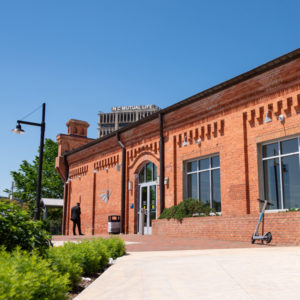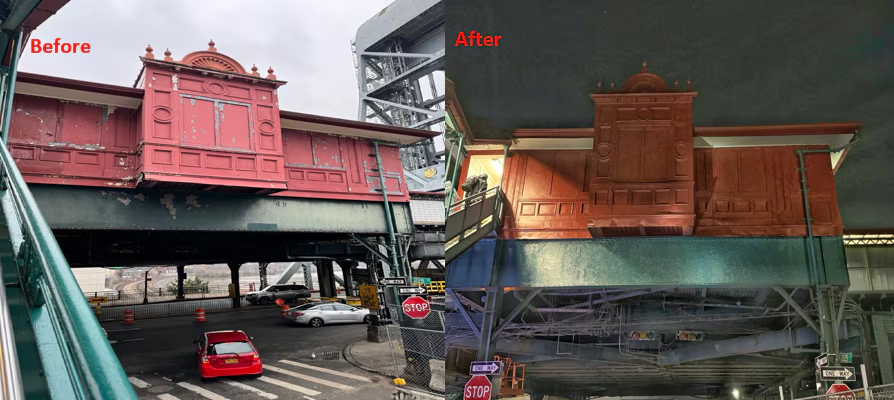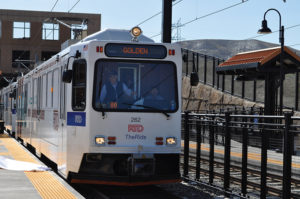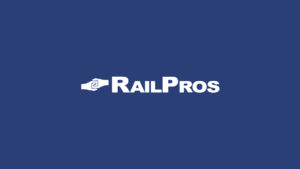Measure R on right track for rail deal
Written by jroodMeasure R money isn't just for road projects' it can now be used to purchase railroad tracks, the Foothills Sun-Gazette reports. The Tulare County, Calif., Board of Supervisors approved an amendment to the Measure R expenditure plan that will allow the county to purchase railroad fixtures including ties, ballast, tracks and signals to ensure that the property is maintained for rail use.
The money is generated
from a half-cent sales tax increase approved by voters in 2006 to fund
transportation projects throughout the county. Supervisor Phil Cox said he
would vote in favor of the amendment with one concession: ‘I will never support
using government money to buy anything out there [along the railroad].’ However,
Cox said he believed that the amendment was prudent because it included a
clause stating any agency requesting rail funds must submit a plan
demonstrating the economic viability prior to receiving funds.
The vote passed 3-1, with
Supervisor Pete Vander Poel the lone dissenting vote.
‘I want to give TCAG the
opportunity to preserve rail at the lowest cost, but I don’t agree that
[Measure R] money should be used to purchase railroad ties, ballasts, tracks
and signals,’ Vander Poel said. ‘I can’t support this whole package.’
Supervisor Allen Ishida
did not vote because he left the meeting to travel to Florida for a meeting
with RailAmerica executives. Ishida said he, along with Rail Advisory Chair Tom
Sparks and Tulare County Association of Governments (TCAG) Director Ted Smalley
would be discussing the company’s future use of San Joaquin Valley Railroad
right-of-way, tracks, ties, ballast, etc. in eastern Tulare County.
‘Short-haul rail is a
priority in all eight counties of the Valley from Kern to San Joaquin,’ Ishida
said. ‘But because of the abandonments here, Tulare County has been pushed to
the center of the push to make sure the Valley has rail in place.’
Ishida said that it was
likely this meeting was the last time that county officials would be able to publicly
speak about the railroad issue, because RailAmerica would only negotiate if the
county were to sign a confidentiality agreement going forward.
County Counsel Kathleen
Bales-Lange clarified that approving the amendment does not give TCAG the
authority to spend money on any railroad assets without appropriate public
discussion and input.
In order to fully enact
the amendment, at least half of the county’s eight cities representing half of
the county’s population have to approve the document. During a special meeting,
Exeter became the last of the foothill cities to approve the amendment.
Farmersville, Lindsay and Woodlake all approved the amendment in December.
Tulare and Visalia also approved the amendment in December, giving the
amendment enough cities to satisfy the population requirement.
Measure R was originally
amended to allow for the Right Of Way acquisition and/or preservation of rail
corridors in November 2008 after the San Joaquin Valley Railroad filed for
abandonment of a 30-mile segment of rail between Jovista, near Delano, and
Lindsay and an adjoining 10-mile segment from Lindsay to Exeter. In June 2008,
the Surface Transportation Board approved the abandonment of the 30-mile
section saying that SJVR would lose $110,878 if it continued to operate the
rail line for another year.
While TCAG argued that
the loss of the rail line would negatively affect air quality by increasing
truck transportation and deny businesses needed rail access, the STB countered
that ‘no traffic has moved over the line since October 2006, and there is no
credible evidence in the record showing that shippers have made a commitment to
resume rail shipments to the extent necessary to warrant requiring SJVR to
continue to provide rail service over this line,’ despite serving historical
rail users such as Tri K Truss, Sierra Forest Products and Britz Fertilizer.
STB denied SJVR’s second
proposal to abandon the nine-mile stretch of rail, citing SJVR’s own evidence
that Tulare Frozen Food’s traffic on the Line had increased dramatically since
2005. In addition, TFF provided evidence that there would be a substantial
increase in traffic once its new storage facility is completed. ‘Thus, it
appears that Tulare Frozen Food’s traffic levels and the resulting revenues for
SJVR are increasing and that they may continue to increase.’
TFF stated that truck
transportation would add significant costs: approximately $250 per truckload to
Fresno, and approximately $330 per truckload to transfer at Fresno, totaling an
additional $580 per truckload. At three truckloads per rail carload, the total
added costs of truck transportation would be $1,740 per rail carload and would
have cost the company an additional $261,000 in the next year.
STB said that part of
their decision was based on incomplete information regarding the section of
track and that the railroad could re-apply for the abandonment, which officials
agree SJVR will likely do.
SJVR has also hinted that
they may apply to abandon another segment of the line running from Exeter to
Dinuba. And recently, Tulare Valley Railroad filed for abandonment of three-mile
long line from Ducor to Ultra, east of Terra Bella.
According to SJVR, the
track was completed in 1897 by the San Francisco and San Joaquin Valley
Railroad. A year later, it was purchased by Atchison, Topeka and Sante Fe
Railway Company. Eventually, the rail was purchased by Southern Pacific and
Kyle Railways in 1992. States Rail acquired Kyle in 1997 and then States Rail
was purchased by RailAmerica in 2002.
SJVR line is still owned by
RailAmerica, Inc., Based in Boca Raton, Fla., RailAmerica operates 41 shortline
and regional railroads along 7,800 miles of track in 25 states and three
Canadian provinces. Union Pacific owns the land and 100-foot right-of-way on
which the line runs.





